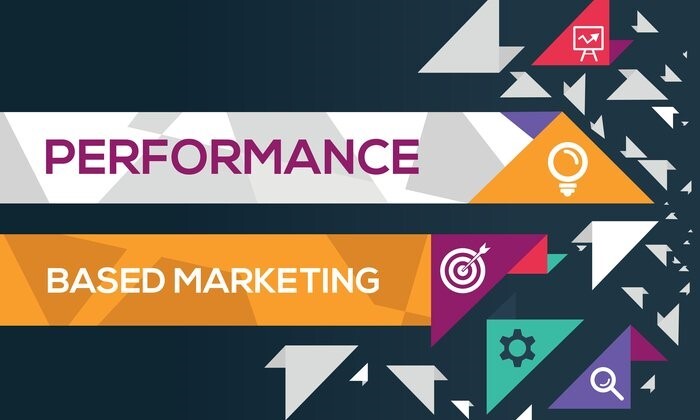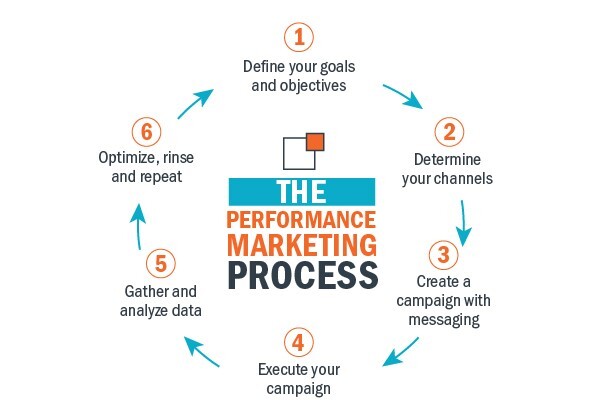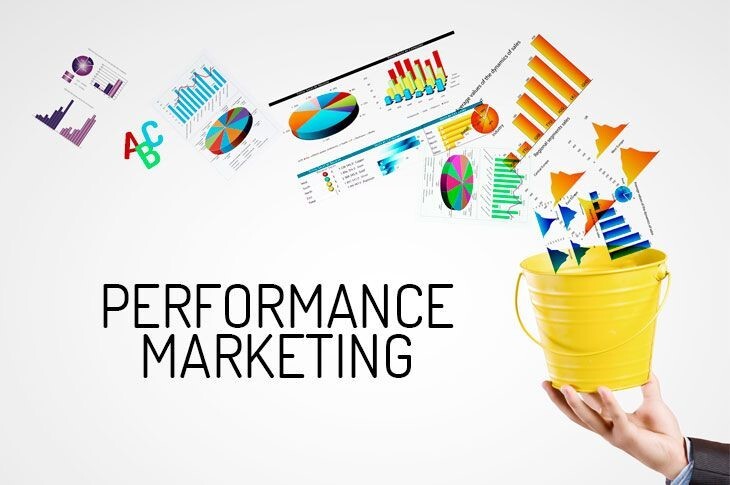It doesn't matter if it is increased sales or more click-throughs; the goal is to have a high performance from the campaign.

Nevertheless, not all business owners get the results they have envisioned during the planning phase. These marketing efforts sometimes fail, leaving you spending much money without any result. What if you only pay for a marketing campaign that turns successful? What if you are getting charged for your marketing campaign after the strategy gave you the desired results?
For some, it is only a mirage. Notwithstanding, it is possible to achieve this feat. You have a big shot to increase your online success with performance-based marketing. It is a viable way to run your online campaign. This article will explore how performance-based marketing works and practical ways of running a digital marketing campaign for a better outcome. Without further ado, let's begin with the definition.
What is Performance-Based Marketing?
From the introduction, you would have had an idea about performance-based marketing. However, it is essentially a result-focused marketing strategy that allows business owners to only pay after getting the results they want. Therefore, you can run a marketing service instead of paying monthly or annual.
There are several results to base your marketing on, which can be anything measurable. These include ad views, app installs, ad clicks, page clicks, sales, demo downloads, social media engagement, and so on.
Frequently, online marketers use these results to make decisions or check which marketing strategy is producing results or not. Furthermore, it can help marketers experiment with new ad formats or adjust keywords in their marketing campaigns. Overall, performance-based marketing makes it easier for business owners to drive growth and improve their business performance.
How does Performance-Based Marketing Work?

To understand how performance-based marketing works, we will use an example to illustrate this. This example will be the perfect way to clear any doubt or confusion you have had regarding performance-based marketing. For instance, Erico Agro is an agricultural-based company. The company decides to use a Facebook ad to drive users to perform specific actions.
Assuming Erico Agro used performance-based marketing, they might pay whenever someone clicks a particular page or purchases on their website. However, if Erico wants to structure it so that they will only pay when their set target is clicked, they will need performance-based marketing.
Is there any limitation to such marketing? Obviously, it became less helpful when the objective was generated; it would take a longer time to materialize. This is true because there is no metric to measure or track the long-term goal. Nevertheless, there are several benefits attached to using performance-based marketing besides tracking your social media followers and page views.
Benefits of Performance-Based Marketing

With a basic understanding of performance-based marketing and its works, it is essential to explore some of its benefits. While there are countless benefits, we will focus on how performance-based marketing benefits both businesses and marketers.
Simplified measurements
One crucial advantage of using performance-based marketing is the ability to measure your metrics. Marketing experts can evaluate essential metrics to analyze successful campaigns. Furthermore, they can optimize their marketing strategy based on any tangible results acquired.
On the other hand, business owners can analyze marketing results to decide the best approach to their marketing efforts. Overall, performance-based marketing can enable business owners to evaluate their performance directly.
Better Marketing Insights
Performance-based marketing offers a detailed view of how your marketing strategies work. For instance, you can track your CTA engagement, sales funnel progress and social media ad performance. It is easier to make a better long-term decision if you have relevant information. This will drive growth and data-driven decision in the long term. Furthermore, you can integrate digital marketing software and tools to monitor all your data from one dashboard. With this, you have a broader view of your marketing campaign.
Minimized Risks
Looking at performance-based marketing from a business perspective, it offers minimal financial risk compared to other models. It allows you to make accurate decisions based on data that helps improve your opportunities to run a successful campaign. In addition, you don't have to waste any results on a campaign that fails. Overall, it boosts your return on investment over time.
Improved Transparency
Another vital benefit of using a performance-based marketing strategy is its transparency to business owners and marketers. For marketers, you can meet the expectation of your clients since you know the objectives. However, business owners, you have clear and transparent payment terms. You only spend money if you acquire the desired results.
Disadvantages of Performance-Based Marketing
While there are several benefits in performance-based marketing, it also comes with certain drawbacks. Let’s look at a few of these disadvantages.
Neglecting your priorities
Performance-based marketing focuses on producing fast results. If your goal is about short-term stuff like ad clicks and impressions, you might lose the overall goal. Although you might get a return on investment, it won't translate into high profitability in the long term.
High risk of fraud
It can lead to serious risk through the creation of quick results. There is the tendency of getting an increased risk from ads. For instance, unethical marketing companies can use bots to generate ad clicks that create fake impressions and false traffic. It's challenging to detect such ad fraud, affecting your marketing efforts.
When to use Performance-based marketing
If you don’t know whether performance-based marketing is suitable for you or not, there are several ways to know. Let’s break these options available for you.
You have the resources
If your marketing budget is massive, then you can use a performance-based marketing strategy for your business. For most businesses, the issue is the cash flow limitations. However, performance-based marketing allows you to only pay for the results and serves as a good marketing option.
You have a solid digital presence
Assuming your company or business has a solid online presence. It is not suitable for brands looking to build their online presence.
You know about the technicalities in Performance-based marketing
While you only pay for the results, you need to understand the technicalities involved. You can't effectively use the results if you don't know how to gather data from different sources.
Conclusion
Performance-based marketing isn't suitable for all business owners or marketers. Notwithstanding, it is worth considering, especially if your business has a solid presence online. In addition, you also have the intention to run campaigns sometime soon.
It is effortless to start performance-based marketing. All you require is to establish a marketing goal, determine the target audience, and launch the campaign. In addition, you have to monitor and track your metric, test the campaign elements, and look for any fraudulent clicks. Overall, performance-based marketing is essential for your online business as it helps provide better marketing results, improve transparency, minimize risks, and simplify measurement.




